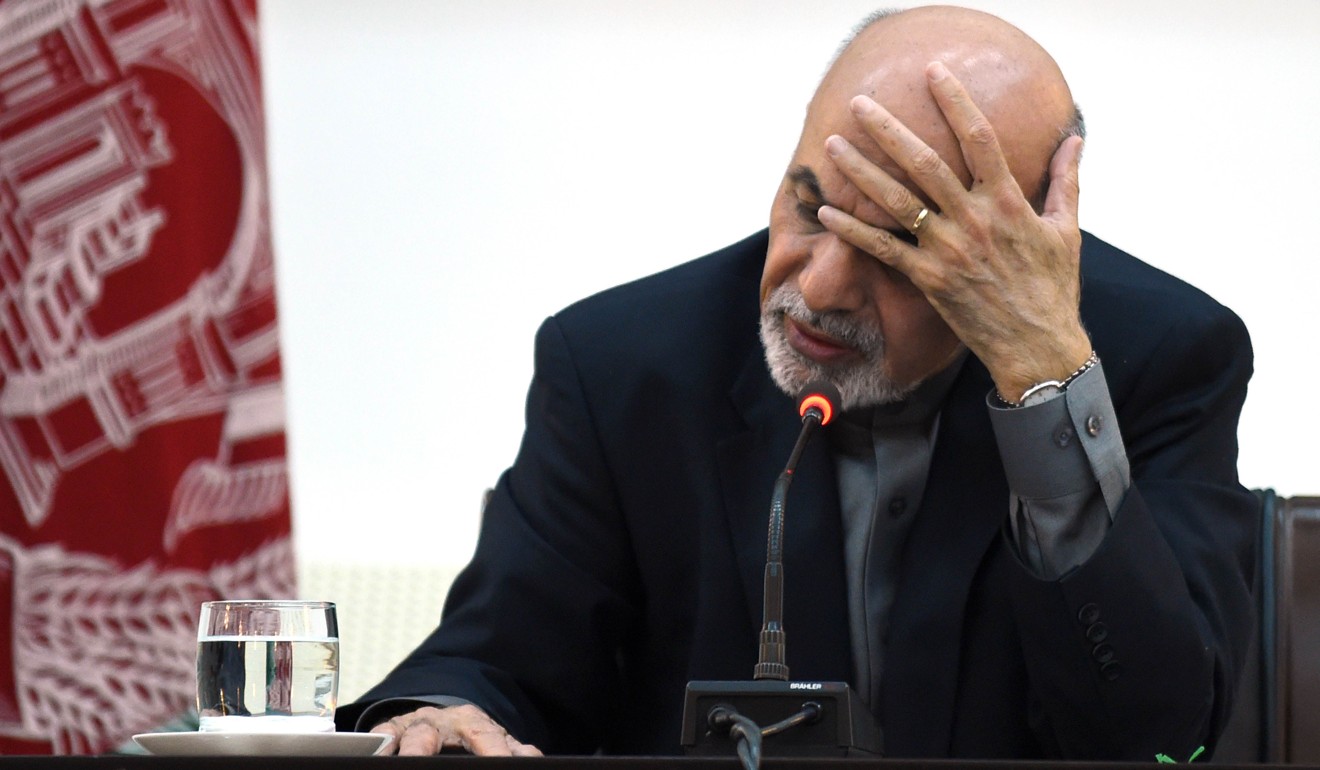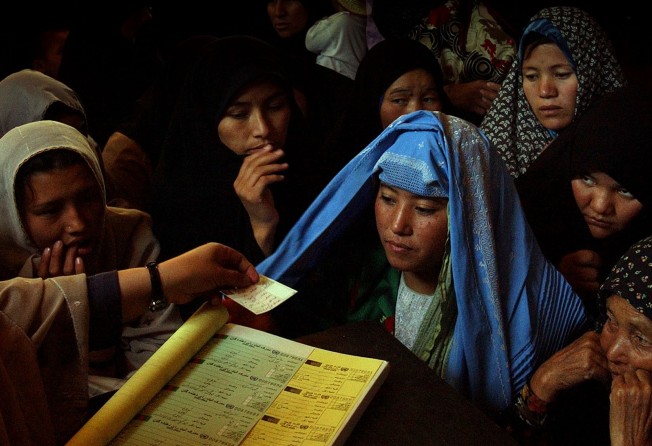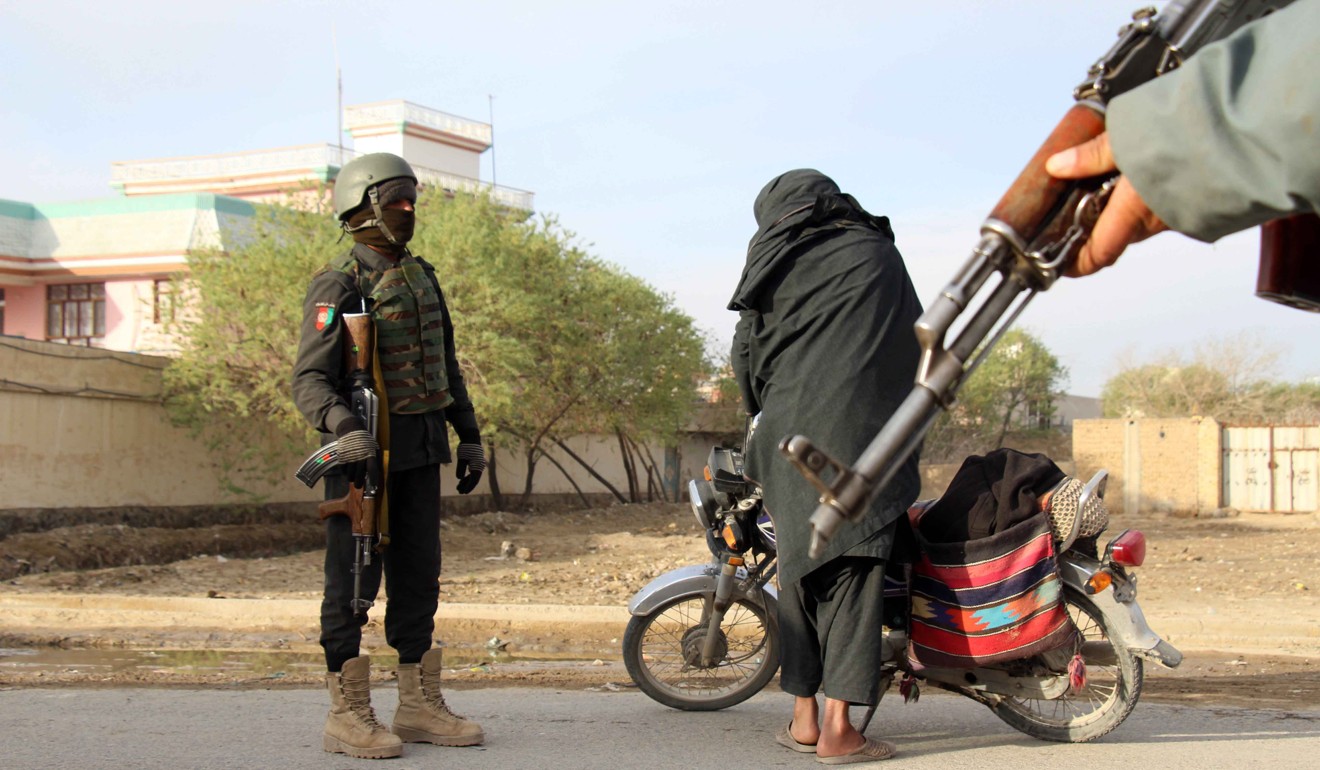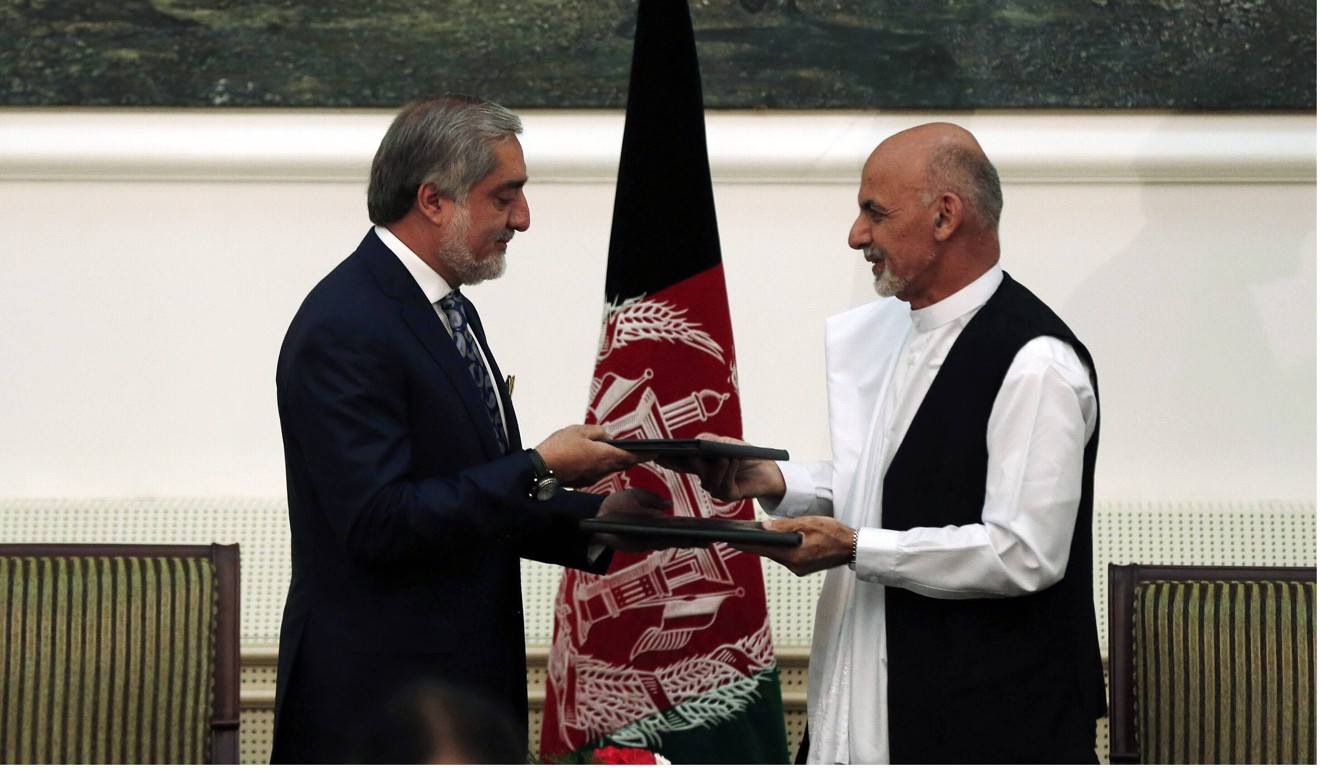
New Afghan identity cards, aimed at unifying the country, are doing the opposite
Some ethnic groups up in arms at being labelled ‘Afghan’, while others angry that their minority tribes are not included in the list of options

When the new Afghan national ID card was introduced by President Ashraf Ghani at a recent palace ceremony, it was not so much the debut of a technological advance as the denouement of a long battle over old political and ethnic enmities.
The fight over the “e-taskera”, as the biometric card is known, has dragged on since Ghani took office in 2015. After a fraud-plagued election, he promised to produce a new identity document that would unite the country and make it almost impossible to steal or falsify votes at the polls.
Despite the apparent virtues of a foolproof ID card in a country where many adults cannot write and use only one name, the e-taskera has triggered endless suspicion, conspiracy theories and shouting matches over such seemingly simple decisions as whether the card should designate “Afghan” as the nationality for all Afghan citizens.

The card has become a hi-tech proxy for unresolved conflicts that drove Afghanistan to civil war in the early 1990s and swept the Taliban into power.
Heated political battles over whether and how to identify cardholders by ethnicity and “nationality” – a term commonly used here to mean one’s tribe – have disrupted and delayed production of the cards for several years. At one point, a batch of several million newly-made cards had to be thrown out and redesigned.
A non-calculated word and a non-calculated move against the people can create a big challenge
On the surface, the official version of the card appeared to be a compromise. It described every citizen as an “Afghan” by nationality, as stated in the constitution, while allowing each one to choose an ethnic identity from any of the 14 groups listed in the charter as well. The largest of those is Pashtun, followed by Tajik, Hazara and Uzbek.
But even during the long-awaited palace rollout February 16 - where Ghani, his wife Rula Ghani and his first vice-president Sarwar Danish signed up for the first three cards - controversy continued to rage inside and outside the government.
Abdullah Abdullah, Afghanistan’s chief executive and Ghani’s governing partner, did not appear at the event and called for the announcement to be delayed, warning it could cause a political crisis. The ceremony was attended by Ghani’s aides and some cabinet ministers but boycotted by others from ethnic minorities.
“The government should not create problems among the people by issuing decrees that contravene the people’s will,” Abdullah said. “A non-calculated word and a non-calculated move against the people can create a big challenge. We should not try to go from crisis to crisis.”
The “non-calculated word” was “Afghan”. Leaders of the large Tajik-led group Jamiat-i-Islami – to which Abdullah belongs – objected to using it as a universal nationality, because it has historically been synonymous with “Pashtun”, the numerically dominant tribe that ruled the country for three centuries.

The harshest reaction came from Atta Mohammad Noor, the powerful and wealthy governor of Balkh province and a Jamiat leader. He has refused to relinquish the governorship since the president tried to fire him in December, and he is now expected to challenge Ghani in the presidential race.
At a recent gathering of supporters, Atta warned that distributing cards with the word “Afghan” as the universal nationality would “divide the country in two parts” and bring “the dangerous smell of deadly fights and disintegration”. The former militia leader has made past threats to unleash violent protests unless Jamiat is given more power and perks.

“If there are those who do not like to be named as Afghans, then they should leave Afghanistan,” said Abdul Qadir Qalatwal, a Pashtun legislator from the south. But Fauzia Koofi, a liberal lawmaker from the north, said the original law agreed in parliament should have been implemented. “Afghanistan needs a standard ID card with no mention of ethnicity or nationality,” she said.
Despite the high-level opposition, officials are continuing with the enrolment process for cards as announced, though registration has been slow. One reason is a boycott by a handful of tiny ethnic groups who object to the new cards because they are not listed in the choices.